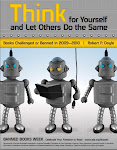by: Bill Quigley, t r u t h o u t | Op-ed
Information is the currency of democracy.
-Thomas Jefferson
 |
WikiLeaks founder Julian Assange.
(Photo: New Media Days / Peter Erichsen)
|
By labeling tens of millions of documents secret, the US government has created a huge vacuum of information.
But information is the lifeblood of democracy. Information about government contributes to a healthy democracy. Transparency and accountability are essential elements of good government. Likewise, "a lack of government transparency and accountability undermines democracy and gives rise to cynicism and mistrust," according to a 2008 Harris survey commissioned by the Association of Government Accountants.
Into the secrecy vacuum stepped Private Bradley Manning, who, according to the Associated Press, was able to defeat "Pentagon security systems using little more than a Lady Gaga CD and a portable computer memory stick."
Manning apparently sent the information to Wikileaks - a nonprofit media organization that specializes in publishing leaked information. Wikileaks in turn shared the documents to other media around the world, including The New York Times, and published much of the documents' contents on its website.




No comments:
Post a Comment